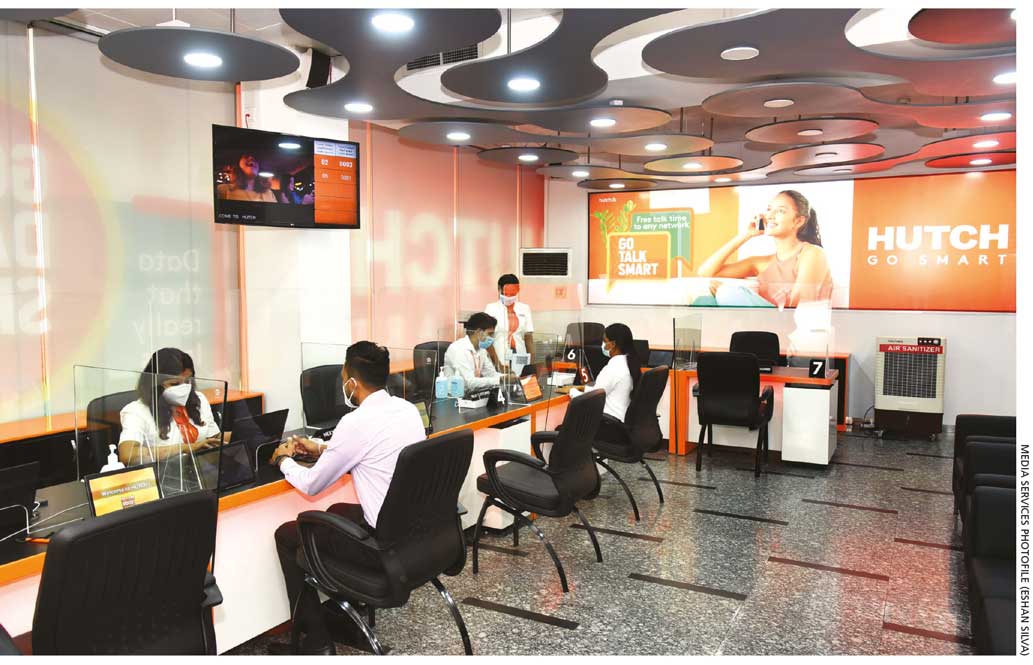LEADING BRANDS PROFILES
Hutch
Q: What is your organisation’s significance as a brand?
 A: Following the merger with Etisalat Lanka in late 2018, our journey of transformation commenced with the beginning of the new decade as the fully merged networks set out to roll out an advanced islandwide 4G network.
A: Following the merger with Etisalat Lanka in late 2018, our journey of transformation commenced with the beginning of the new decade as the fully merged networks set out to roll out an advanced islandwide 4G network.
Hutch began as a small 3G network provider with a relatively weak brand image. We are now engaged on a journey where the brand intends to shake off its ‘small operator’ perception, and position itself as a national 4G operator that appeals to audiences across all social and economic strata.
I believe that our sheer commitment to championing the cause of our consumers differentiates us from the rest of the market.
We passionately follow up on customer complaints to resolve pain points, seek insights for underserved needs and intently listen to their challenges. Hutch also has a lean organisational structure, which enables the brand to pass on cost benefits to its customers.
Hutch aspires to be recognised as an honest, hardworking and practical brand, which appeals to smart and rational thinkers.
Q: How do you view Hutch’s growth potential?
A: A single brand cannot satisfy the needs of all consumers and that is why multiple brands exist in a market. It is critical to have a deep understanding of your own strengths and weaknesses, and optimise them accordingly to ensure that the brand enhances its competitiveness.
Decision makers should not take the competition for granted and must operate with the assumption that they have more strengths than weaknesses. This ensures that your brand does not become complacent. To this end, it is important to play to the brand’s strengths while prioritising the need to work towards addressing weaknesses that tend to be long term.
In my view, our strength is in the ability to read consumer insights; and given the fact that Hutch operates a very lean structure, the brand has the agility to respond to them effectively.
As competitive as the telco market is in Sri Lanka, smartphone penetration is still only 50 percent and we envision great potential in the future. The market displays signs of exponential growth and not all operators are able to manage network quality key performance indicators (KPIs) in an environment of rapid change.
Our expertise and brand promise is in managing and optimising Hutch’s network resources, to ensure that consumers can enjoy an affordable and consistent experience.
Q: What is your take on the impact of the pandemic on brands and branding?
A: A brand is the sum of emotions, perceptions, smells and sights that a name conjures up. And branding is the process that takes you to this ultimate emotional connection between the brand and its stakeholders.
The pandemic and its ensuing economic vortex impacted how we approached both since it significantly changed consumer purchase and consumption habits. This means that we must keep the emotional connection with the brand intact as Hutch wishes to be seen as a friend, not a predator.
In the meantime, the brand has implemented rapid changes to its communications and distribution strategies, to change where and how it is placed, seen and perceived.
Digital platforms that used to be support channels and mediums became heroes overnight. As customers stayed away from physical channels, we fast tracked digitisation across as many touch points as possible – including multiple online reload platforms, a self-care app and customer servicing – and by introducing DIY SIMs.
In a market where 70 percent of customers still use scratch cards to reload their phones, this conversion process isn’t an easy task.
 Q: What role can brand investments play in accelerating business recovery?
Q: What role can brand investments play in accelerating business recovery?
A: The private sector is the engine that drives the economy. Investments in brands can help drive positive messages to consumers, which has a spiral effect in creating a feel-good factor that drives greater economic activities.
Q: How important is reputation and integrity when it comes to branding?
A: Reputation is the most valuable brand asset. Each brand offers a promise; and how it is delivered will determine your brand reputation.
There has to be an action plan to nurture and protect the brand reputation at the heart of all marketing strategies. If the integrity of a brand is damaged, it can undo years of hard work and investments.
Organisations must pay extra attention to the integrity of their people and processes that deliver the brand promise.
A good brand reputation is your ultimate brand evangelist and it is very healthy for the bottom line.
website: www.hutch.lk

Chief Marketing Officer




